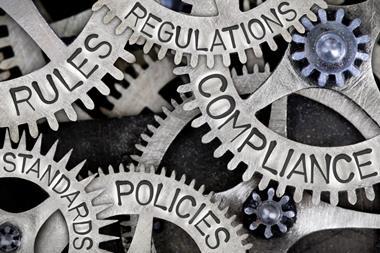Operational resilience has never been so vital in a world of increasing volatility
For the last two years, it feels like we’ve lived in a state of ongoing crisis as unexpected global events have disrupted organisations in every part of the world.
From a global pandemic and massive supply chain disruptions to rising inflation/cost of living and large-scale cyberattacks that have stopped businesses in their tracks, organisations large and small have faced numerous challenges.
Consequently, operational resilience has never been so vital. Now the geopolitical crisis in Ukraine is also demonstrating the critical need for resilient and robust organisations that can adapt and flex quickly to make informed decisions and actions.
The geopolitical crisis in Ukraine is multifaceted, affecting personnel safety, supply chain, vendors, and the economy. It’s now critical for organisations to assess the immediate and potential future effects on their organisation and take swift action.
Assess Impact
The first step in formulating a response for your business is to assess the impact of any threat or disruption and fully understand which business operations, clients, vendors, and partners could be affected.
Organisations with offices in or near areas affected by the geopolitical crisis must consider how daily operations will be affected.
Employee safety and security should be the top priority. Businesses must also consider that government intervention such as sanctions, financial limitations, or government restrictions may hinder the organisation’s ability to function as usual.
Even if an organisation does not have direct ties to the affected areas, no organisation exists in a vacuum. Firms must identify the impact on business-critical vendors and how it directly impacts the business. The effect on vendors and their supply chain may not be instantly apparent, so organisations must proactively reach out to third-party providers and inquire about their operations and resilience plans.
Crisis Calls for Action
Crisis requires a response. That’s why it’s critical that every business has a comprehensive crisis and business continuity plan in place that was developed with key stakeholders and can be quickly activated to ensure the business can continue operations.
There will be many moving parts in this process. Activating subgroups and subtasks to orchestrate the complete business response is critical to remain organised and efficient.
Subgroups should take on separate tasks of the overall business response such as vendor alternatives and geographic office logistics and engage with key stakeholders of the C-suite for critical decisions and approvals.
Keeping the C-suite updated during the activation of plans will be critical for success.
Understanding the vendor and supply chain dependencies and project potential impacts during disruptive events requires mapping of business processes in detail, preferably this action happened before the crisis.
Organisations should be focusing on critical business processes which support critical services and products of the organisation. If an organisation does not have a complete vendor/supply chain map to its critical products and services, it must use existing data on critical business services and products and engage from that point.
Engaging with essential vendors and fully understanding their position and operations will direct the next steps. In some cases, vendors can continue operations as usual, but in some cases, organisations may need to find an alternative supplier – and quickly.
Prepare for the Long-term
The effects of COVID have shown how important it is for every business to have a long-term high-level plan for an economic downturn, and for leaders within the organisations to be prepared for when cash flow and the market are not acting favourably.
Plans are not the end goal. They are a good exercise; it is the muscle memory response to the goal and that makes an impact in times of crisis. Organisations must be able to look at a plan, understand how the current situation deviates from the plan, and quickly act.
It’s critical to have data on how operations run and understand all moving parts that contribute to the business as usual. Mapping this data in an organised manner will enable action without delay when long-term disruptions affect an organisation. Understanding how an organisation works provides the knowledge to put it back together.
Process mapping starts within your organisation and extends to the internal and external dependencies, including vendors, supply chain, applications, people, and physical sites that support your daily business functions.
Simply knowing who oversees what functions and tasks are not enough. One business process can have multiple teams in different regions/countries and use different vendors for the same product/service simply because of the geographical difference.
You must completely understand operations at every level and have clear upstream and downstream dependencies. Know which vendors you rely on for which operations to recognise the impact on your business in times of crisis and inform thought-out decisions.
Prioritise Resilience
Operational resilience gives organisations the tools to understand operation data points and locations. Once an organisation understands its data, it can be effectively mapped and analysed for multiple situations regardless of what kind of disruption the organisation faces.
Whether a geopolitical crisis, natural disaster, or supply chain shortage, resilience provides the ability to digest data and take swift action. Proactive planning provides an opportunity to have multiple options that are pre-discussed and pre-approved for the worst-case scenario.
Businesses cannot achieve resilience unless they fully understand their critical processes. After identifying critical processes, they must discuss and plan for when business as usual halts. Critical operations typically include people, applications, sites, and suppliers that enable an organisation to fulfill its brand promise to customers under normal conditions.
By prioritising resilience, organisations can ensure no single point of failure.
Pivot and Adapt
Over the last two years, we have experienced wide-ranging crises that have affected almost every organisation in some way. We should recognise that disruptions are here to stay and it’s no longer a question of if another crisis will occur; it is a matter of when. Never has it been more important for a business to be able to pivot and adapt to any disruption.
It’s critical that businesses today understand the global threat landscape so they can proactively respond and get ahead of potential disruptions. Sometimes overreaction may present the best option for a business.
Predictable crises give firms the time and ability to respond before the situation calls for a reaction. Monitoring the global landscape continuously offers organisations the time to act before imminent danger, especially when life and safety are at risk.
Take a People-first Approach
When preparing for any disruptions, organisations should put people first. With the proper data, preparedness, and plan, firms can seamlessly adapt new operation models and logistics and worry about what truly matters: people and safety.
No business can exist without its employees. By showing genuine care for employees and their families who may be affected by a crisis, organisations can boost employee morale.
Taking a ‘we are all in this together’ approach goes beyond social media posts or other marketing content. By displaying genuine care, employee and customer loyalty will increase well beyond the period of disruption.
Organisations should also be brave and stand up for what they believe is morally right. Do not be the one lagging while everyone is taking a particular stance out of fear. It is not about politics; it is about caring for human life and putting people first.
Looking Ahead
The geopolitical crisis in Ukraine is evolving by the minute. The situation a business faces today may be different tomorrow. Organisations must prioritise agility in these situations to flex and adapt as new developments occur.
If you have not started your resiliency journey yet, this is the perfect time to start and be ready. And, with the appropriate preemptive and proactive measures in place, organisations can prioritise what really matters – human life.
Bogdana Sardak is director of risk at Fusion Risk Management




















No comments yet